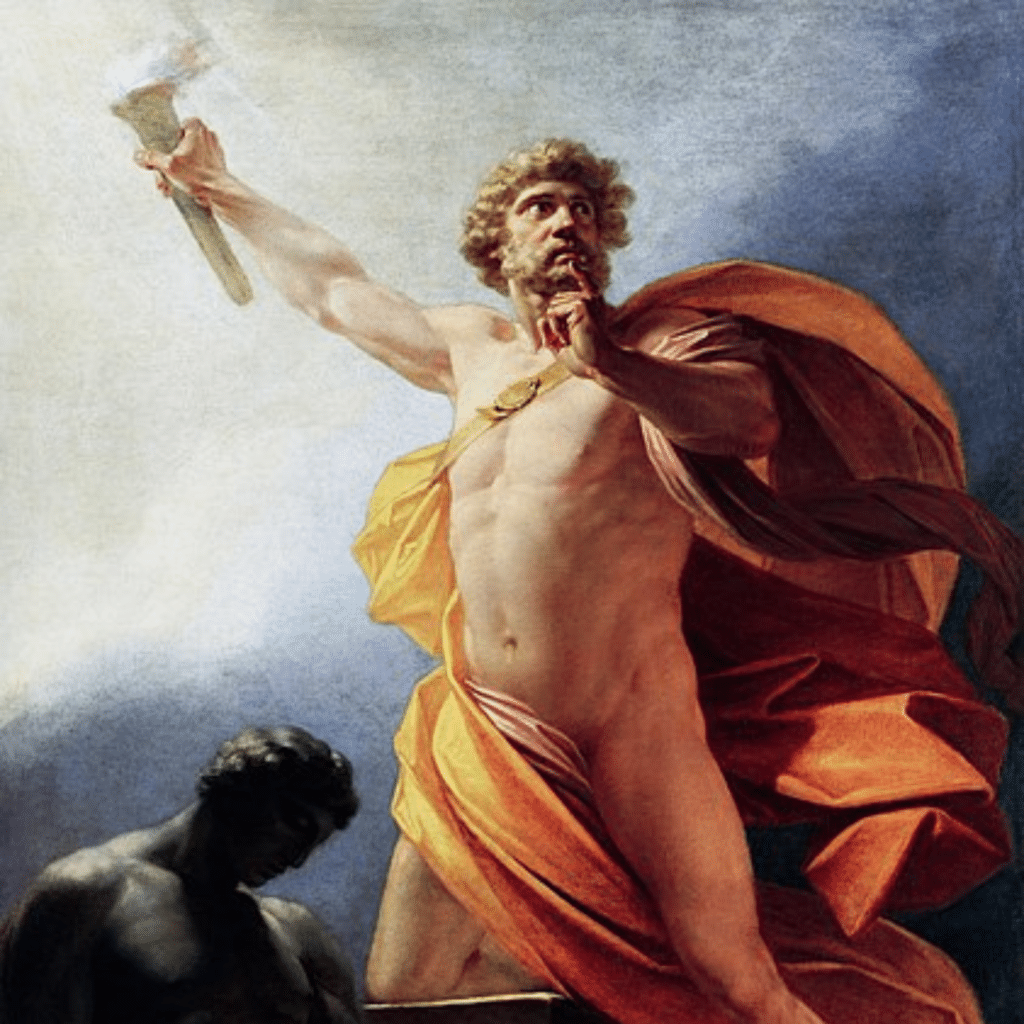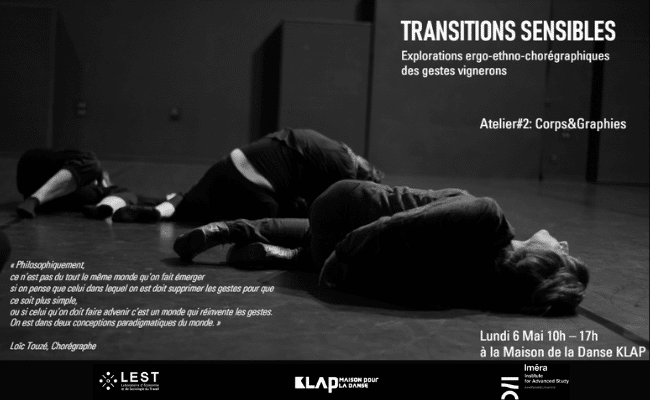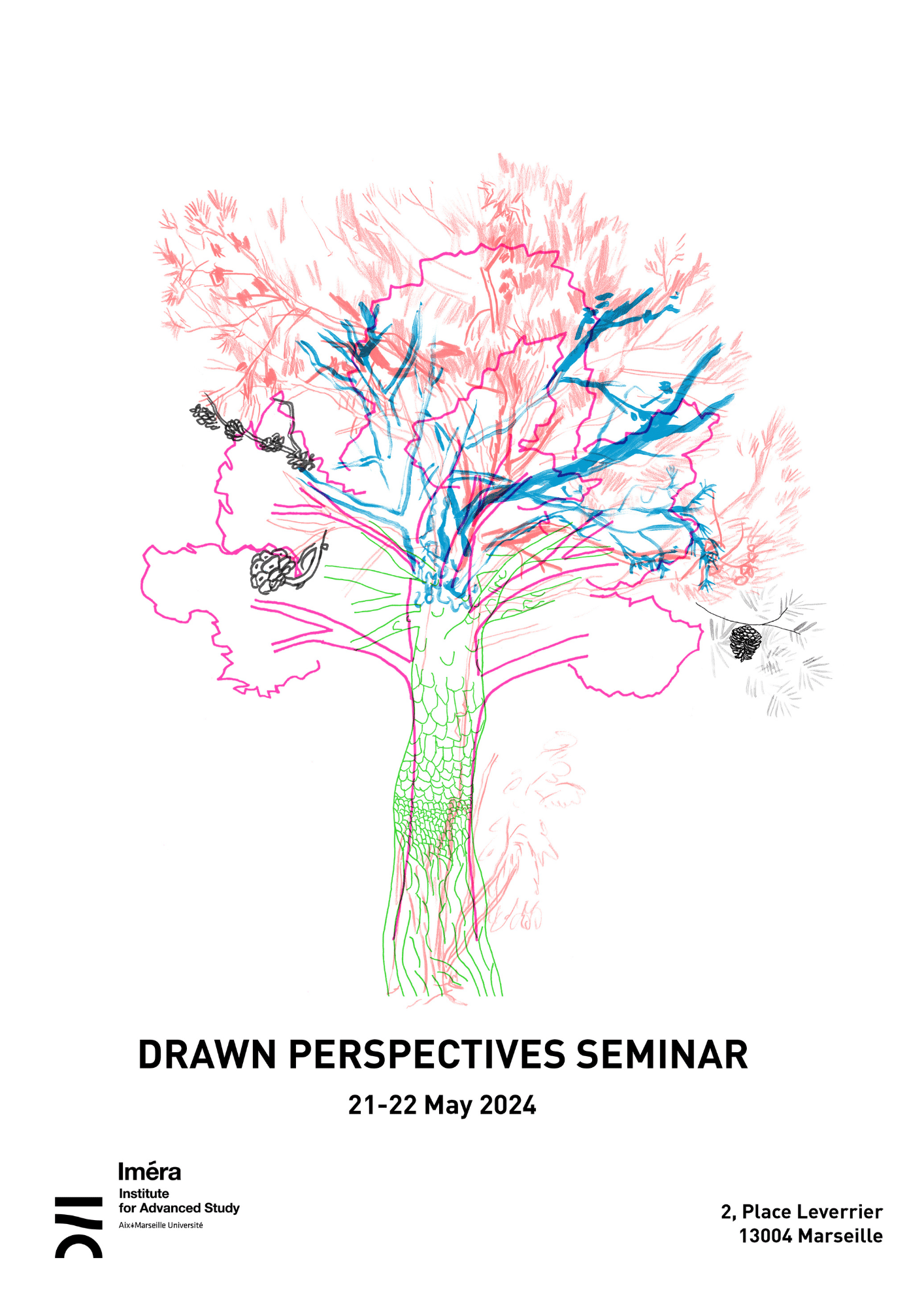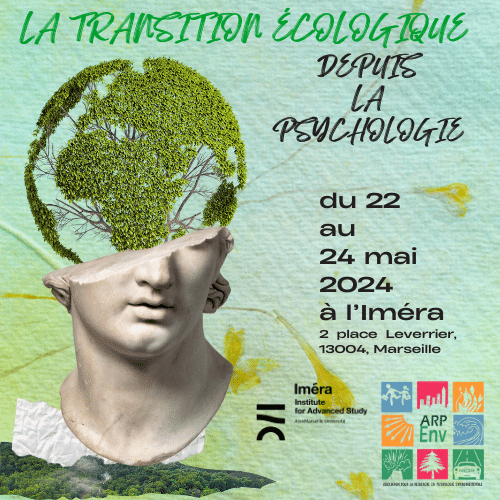| Inter-disciplines est un séminaire proposé par l’Iméra pour réfléchir aux conséquences théoriques du dialogue interdisciplinaire. Des personnalités d’envergure internationale, qui ont travaillé activement à la frontière de deux (ou trois) disciplines présenteront dans une grande conférence un bilan des changements théoriques ou méthodologiques que ce dialogue interdisciplinaire a impulsé et de la dynamique qu’il a déclenchée dans chacune des disciplines. La grande conférence est introduite la veille par un séminaire dont l’objectif est de préparer la grande conférence en amont avec les doctorants et les masterands, sera conduit par Gabriella Crocco et Fausto Fraisopi (Iméra), Olivier Morizot et Florence Boulc’h (IRES AMU). |
Sciences and their limits: rethinking the digital, cognition, and life
” Science, driven by the search for meaning, is thus intertwined with the (politically) essential task of fostering a human community aware of the vital challenges it must confront and responsible in its actions. “

In this first session of the 2023-24 cycle, Giuseppe Longo and Marie Chollat-Namy offer you a critical exploration of fundamental concepts related to computer science, biology, cognition, and artificial intelligence:
wednesday 11 October
3-6 p.m.
(Iméra, First-floor meeting room of Maison Neuve)
Critical examination of the idea of computation and information applied to living beings and cognition
Speaker: Marie Chollat-Namy, postdoctoral researcher under Giuseppe Longo at the Cavaillès Center, Republic of Knowledge, École Normale Supérieure, and Vice President of the Friends of the Thunberg Generation Association.
During this seminar, Marie Chollat-Namy will discuss the deceptive use of the concepts of information and computation in molecular biology, widely adopted in neuroscience and across all aspects of life, from the microscopic to the macroscopic. She will present the info-computational view of human and biological cognition as guided computation driven by a teleological optimality law in constant battle against entropy. Following the alleged decoding of the “program” of life, this paradigm promises the decoding of the human mind and its surpassing by artificial intelligence, not without consequences at scientific, philosophical, and political levels.
Drawing from certain theses in the book “Le cauchemar de Prométhée: Les Sciences et leurs limites” (Giuseppe Longo 2023), she will emphasize the limitations of the concepts of information, computation, and optimality applied to life and its intelligence. She will then propose an alternative anti-entropic and non-teleological approach that integrates the question of meaning.
| Marie Chollat-Namy’s lecture will be followed by a discussion about G. Longo’s book “Le cauchemar de Prométhée: Les Sciences et leurs limites,” moderated by Gabriella Crocco, Epistemologist and Head of the Explorations interdisciplinaires program at Iméra, Fausto Fraisopi, Philosopher and Senior Fellow at Iméra, Olivier Morizot, Physicist and historian of science, and Florence Boulc’h, Chemist at AMU, who are co-responsible for the IRES interdisciplinary group. |
Marie Chollat-Namy is a postdoctoral researcher at the Cavaillès Center, Republic of Knowledge, École Normale Supérieure, working in the team of Giuseppe Longo and Maël Montévil. She also serves as the Vice President of the Friends of the Thunberg Generation Association.
During her undergraduate studies in life sciences at Agroparistech school, Marie specialized in the fields of cell biology and synthetic biology. Somewhat disappointed by this young discipline, which was rich in promises but lacked theoretical depth, she redirected her focus toward immuno-oncology and pursued her doctoral thesis at the Gustave Roussy Institute, specializing in cancer research. Faced with the challenges of contemporary science and the absence of an explicit theoretical framework, she shifted her attention to theoretical biology, blending biology, philosophy, and mathematics. She actively participates in the Friends of the Thunberg Generation Association, an initiative led by philosopher Bernard Stiegler, notably by leading a working group on entropy and the living.
- Marie Chollat-Namy, Giuseppe Longo. Entropie, Neguentropie et Anti-entropie : le jeu des tensions pour penser le vivant. Invited paper in Entropies, ISTE OpenScience – Published by ISTE Ltd. London, UK, 2022. (ChollatLongo-entropies.pdf).
- Marie Chollat-Namy, Maël Montévil. Critique de la vision info-computationnelle de la cognition, pour une approche anti-entropique du vivant. Papier en cours
thursday 12 October
4-6 p.m.
(Iméra, conference room of the Maison des Astronomes)
Giuseppe Longo’s Grand Conference: Myths and Limits of the Digital – Artificial Intelligence and the Biology of the Genetic Program
This conference by Giuseppe Longo presents the fundamental theses contained in the book “Le cauchemar de Prométhée: Les Sciences et leurs limites,” published in 2023 by PUF. The book organically synthesizes research that Longo has been conducting for decades, employing a dual interdisciplinary approach.
On the one hand, his reflection starts from mathematics and extends to other sciences, notably information sciences and life sciences. He strongly denounces a long-standing double reduction within theoretical knowledge. This reduction includes the reduction of mathematics to a formal calculation devoid of meaning and the computational and mechanistic reduction of life, which contributes to ecosystem disruption and the pitfalls of a dominant molecular biology based on false or vague principles and laden with consequences.
On the other hand, Longo’s meditation begins with the relationships between science, history, and philosophy to critique the scientistic ideologies and myths that shape our society and threaten our coexistence. He proposes an innovative and “alternative” epistemological approach to the mainstream, based on the concept of limits. In response to an increasingly invasive technoscience, science can establish its own boundaries.
By challenging these deceptive visions of our present, the complexity of life (which cannot be reduced to algorithmic processes) and human knowledge (which cannot be reduced to the reconstruction of computational procedures) emerges. Science, driven by the search for meaning, is thus intertwined with the (politically) essential task of fostering a human community aware of the vital challenges it must confront and responsible in its actions.
Giuseppe Longo is an emeritus research director at CNRS (French National Center for Scientific Research) and a member of the Cavaillès Center, Republic of Knowledge, CNRS, Collège de France, and École Normale Supérieure. You can find more about him here: https://www.di.ens.fr/users/longo/.
He also served as an Adjunct Professor at the School of Medicine, Tufts University, Boston, USA, from 2013 to 2019.
As a mathematician, he has dedicated a significant portion of his work to studying the relationships between mathematics, computer science, and physics, as well as developing theoretical concepts applicable to biology. He has supervised 22 doctoral theses in computer science, logic, and at the interface of physics and biology. More recently, through numerous collaborations, Longo has compared physical randomness (dynamic and quantum) to algorithmic randomness, enriched and applied the theory of criticality, modeled biological rhythms and protensive time in two-dimensional varieties. Analyzing non-computability in logic and physics has allowed for discussions on unpredictability in biology and the theoretical structure of evolution. His current project involves developing an epistemology, historically documented, exploring new interfaces between disciplines and seeking alternatives to the new alliance between computational formalism and the governance of humanity and nature through supposedly objective “optimality” algorithms and methods.
La bibliographie complète de G. Longo est disponible ici https://www.di.ens.fr/users/longo/download.html
Travaux en relation à la conférence de Longo
* G. Longo. Letter to Alan Turing. Invited, in Theory, Culture and Society, Posthumanities Special Issue, 2018: (Letter-to-Turing.pdf) (Version ”article”, en français, largement revue en collaboration avec Jean Lassègue pour Intellectica, 2020: Longo-Lassegue-Turing.pdf;
*Giuseppe Longo. The Cognitive Foundations of Mathematics: human gestures in proofs, in Images and Reasoning, (M. Okada et al. eds.), Keio University Press, Tokio, pp. 105-134, 2005: incompl-images.pdf (version préliminaire en fran,cais, étendue par un texte avec Francis Bailly, in Il pensiero filosofico di Giulio Preti, (Parrini, Scarantino eds.), Guerrini ed associati, Milano, 2004, pp. 305 – 340. (incompl-incert.pdf))
*Giuseppe Longo. The reasonable effectiveness of Mathematics and its Cognitive roots. In Geometries of Nature, Living Systems and Human Cognition series in “New Interactions of Mathematics with Natural Sciences and Humaties” (L. Boi ed.), World Scientific, pp. 351 – 382, 2005. (reason-effect.pdf)
* G. Longo. Des hommes et des machines : comment reconnaitre une caricature ? aux Actes du Colloque “Le travail au XXIème siècle : Droit, techniques, écoumène“, Collège de France, Paris, 26-27 février 2019: (ReconnaitreCaricature.pdf)
*G. Longo. Corrélations artificielles vs intelligence des causes, dans le Livre Blanc Tome 2 “Contribution des outils numériques à la transformation des organisations de santé“, Commission des Affaires Sociales, Assemblée Nationale, Paris, 2019: (CorrelCauses.pdf)



